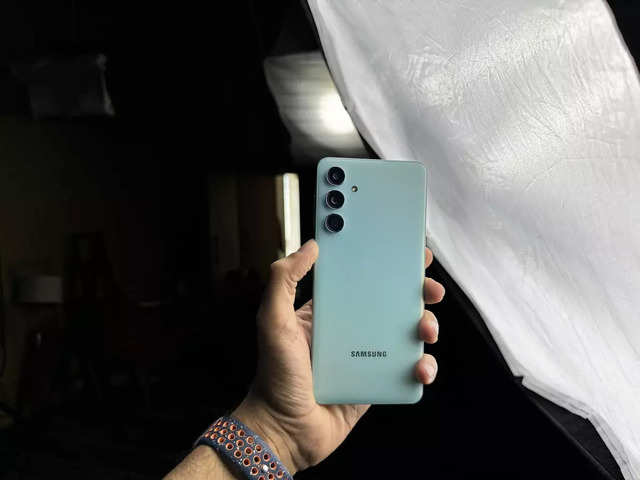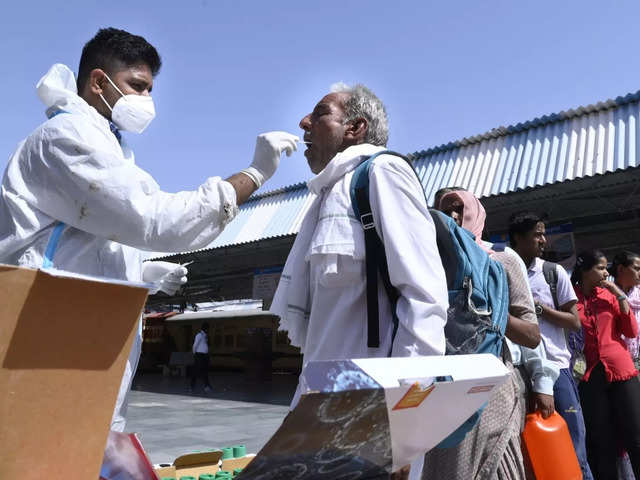
Mark Leadercramer, General Manager, South APAC, MintelMintel
Mark Leadercramer, General Manager, South APAC, Mintel has some advice for brands
Aug 10, 2020, 10:00 IST
brands
To resonate with consumers, brands need to cater to the growing need of hygiene and holistic well-being: Mark Leadercramer, Mintel
Aug 10, 2020, 10:00 IST
Mark Leadercramer, General Manager, South APAC, Mintel has some advice for brands
Mintel , a market intelligence agency that has been around since 1972 studies what consumers want and why and helps brands make better business decisions faster.Mark Leadercramer , General Manager, South APAC, Mintel walks us through some of the larger trends andconsumer behaviour changes that have come about in the last few months, post the outbreak of Covid-19.- He also has some advice for brands to help them effectively weather the storm that we are living in currently.
The outbreak of the novel
With this changing consumer behaviour, it is imperative for brands to become better listeners than they have ever been before. Because at times like these, brands that are empathetic, and are really listening to what their consumers want, and changing their business accordingly, are the ones that will come out of this successfully.
In such a scenario, research has become very important, to understand the kind of changes happening around us. Market intelligence agency Mintel that studies what consumers want and why, has helped brands, over the years, to make better business decisions faster.
We recently caught up with Mark Leadercramer, General Manager, South APAC, Mintel, to understand the kind of changes that have been happening not just in India but across the world. He tells us how brands can navigate the situation and a few things they need to keep in mind to succeed in this new world order.
Excerpts:
Q) There has been a huge change in consumer behaviour due to the pandemic and the ensuing lockdown. What are some of the biggest changes you have observed in the past few months?
While the current situation is completely unique, we do have past virus crises like SARS and economic recessions to look back on and learn from. Luckily, Mintel have been around since 1972 and so can draw on our research from those difficult times to help our analyst provide thorough insight today. For example, in the UK, some of the biggest winners of the last recession were absolute luxuries, the likes of premium skincare and sparkling wine. They are products that, whilst not critical, did a great job of providing small treats, lifting people’s moods in tough times.
The outbreak has certainly created many challenges for companies in the short-term, but it has also made understanding markets and consumers more relevant and important than ever. Understanding that generations before us have experienced similar situations and persevered should encourage consumers, businesses and governments that this pandemic is also not the end. Sometimes a look back is the best way to take a step forward. Inevitably smart and agile companies will be able to adapt their business to match consumer needs
We started tracking the COVID-19’s impact on consumer behaviours and market shifts as early as February 2020, starting from China, when the country was in a serious situation amidst the pandemic. We realised that COVID-19 will have a long-lasting impact on businesses over brands and we quickly started conducting research and sharing insights via thought pieces on our blog, exclusive insight reports and running COVID-19 sessions for our clients both in India and globally to help provide any insights or guidance for their brand repositioning, product innovation or market opportunities.
Q) What are a few of these changes that you think consumers will stick to, even once things get better, hopefully later this year?
Lifestyle changes triggered by COVID-19 are impacting consumer mindsets. Our research shows that increased handwashing, usage of masks, hand sanitisers, and household cleaning products indicates that consumers are actively taking steps to change their lifestyle as a result of the virus. In order to resonate with consumers, brands need to cater to the growing need of hygiene and holistic wellbeing. In fact, our research highlights that Indian consumers are expecting to spend more on areas such as health care (47%) and household care products (43%). We see this continuing even as the threat of Covid-19 diminishes.
In India as well as in other markets, the spread of the virus has led to consumers looking at health more seriously. This includes a focus on healthy eating, better hygiene, increased consumption of immunity-building foods, exercise, and financial planning for a health ailment. The health wave, which has been a growing focus for consumers and brands even before the pandemic outbreak, will become essential as everyone takes health and wellness more seriously. We have also seen growing awareness and focus on mental health as part of this. It is important for brands to keep a close track of consumer sentiments in the current situation and use ‘empathetic innovation’ to help consumers focus on overall physical and mental well-being as consumers face tough times ahead.
Moving ahead, after months of being sequestered, we know consumers are looking forward to socialising face-to-face with friends and family as lockdowns ease. For some consumers, outdoor rendezvous is likely to be the first step in a long return to socialising. These anxious consumers are likely to continue to wear masks and keep their distance from friends and family when getting together, staying away from gatherings indoors. Many consumers will be reluctant to start eating out, travelling, and going to public spaces after weeks or months of self-sequestering. This is the time for retailers, hospitality and foodservice leaders to make these activities attractive again by being innovative on how they deliver their product in a safe but engaging manner.
Q) A lot of brands are hopeful for a good festive season. Do you anticipate consumer behaviour, especially in India, will go somewhat back to normal during the festive season or do you expect a muted festive season for India this year?
As India continues to reel under the impact of the pandemic, our latest research highlights that, while consumers are showcasing low fear about contracting the infection, they are now increasingly concerned about economic distress as 52% of Indian consumers are worried about the negative impact on domestic growth and 50% are concerned about unemployment.
Moreover, the biggest shift in what Indians are looking forward to post-COVID was in spending time with friends or family; which slipped 9 percentage points from 43% in late June to 34% in early July. Working/studying normally went from 33% to 31% over the same period.
Clearly, Indian consumers are beginning to realise that restrictions are likely to drag on longer than originally anticipated, as cases continue to rise.
Q) What are the larger trends in other Asian regions that Indian brands could learn and therefore adopt from?
The 7 consumer trend drivers mentioned below are very relevant in the current market scenario.
1. Wellbeing: Seeking physical and mental wellness.
2. Experiences: Seeking and discovering stimulation.
3. Identity: Understanding and expressing oneself and place in society.
4. Rights: Feeling respected, protected, and supported.
5. Surroundings: Feeling connected to the external environment.
6. Technology: Finding solutions through technology in the physical and digital worlds.
7. Value: Finding tangible, measurable benefits from investments.
The outbreak of the novel coronavirus (COVID-19) is having a profound impact on the global economy and consumer markets. As a result, many of the predictions set forth in our 2030 Global Consumer Trends have been accelerated and are now relevant more than ever.
Q) What would your advice for brands be to weather out situations like the ones we are facing today which could help them minimize the business impact?
Just like we ask our analysts to ‘be bold’, we ask the same of our clients. Innovation is critical in a crisis and hand in hand with that comes good smart and agile research to make sure you understand your market and consumer which has changed dramatically.
In the current scenario, research can be an enabler for brands and let them keep track of changing consumer sentiments as well as consumers’ expectations from brands. Thus, it is crucial for companies and brands to align their marketing, communications and branding strategies and keep the innovation pipeline ready, even during a crisis.
In the foreground of this pandemic, brands that quickly pivot and offer the best consumer experience even under exceptional circumstances will find themselves with a greater market share in the long run. It is important to connect with consumers in a personal way to deepen trust and loyalty, which will set the tone for how consumers view and interact with them, moving forward.
Smart brands will be thinking about not just this moment of panic, but their longer-term positioning and the potential whitespace that comes with such a massive shift in the way consumers live their lives. Brands have an opportunity to become pillars of stability in an unstable world by offering realness and intimacy to consumers. Humanity and empathy will become the benchmarks by which brands are judged, rather than the old ideas of perfection and brands ‘knowing what’s best’.
Hence understanding what consumers want and why is the key to success. In this way, the right consumer trends can be used as a critical guide for brands through the uncertainty of crisis.
Q) How do you see the rest of the year pan out, both India and in APAC? By when do you think the industry will see growth come back?
Compared to all the crises the world has seen till now, the COVID-19 pandemic is a different situation – and it is still a moving target, waiting for resolution in the form of some sort of remediation, either a vaccine or a medicine that will control the virus’s effect on humans.
Given COVID-19’s ferocity, its speed and its potential to return – the situation we find ourselves in now demands a different descriptor coined by Mintel: we are in the ‘next normal’.
To understand the difference between ‘the new normal’ and ‘the next normal’, consider this: ‘New’ is static, ‘next’ is always looking forward. ‘Next’ has a more complex meaning, it suggests a forward movement. And that’s what our current state of affairs is, because of COVID-19. Since the progression of the disease remains unknown, there are many more ‘next normals’ that will challenge us until the virus is resolved.
More than ever, businesses need to be quick and flexible in adapting to the changes in market conditions. Listening to their consumers at every stage, and adapting their innovation pipeline to become less vulnerable to risks. Brands need to pay more attention to shifts in values in the long term, as the social impact will be longer lasting than the economic impact. Businesses need to prepare for a longer period of economic recovery, as consumer spending will become more prudent due to increasing financial stress. Some industries and companies will experience growth as they adapt to this situation but critical to all of this is understanding your consumer and crucially throwing out the rulebook of the past. We are entering the next normal and a company's agility will be its best indicator for success.
INSIDER INTELLIGENCE REPORTS







